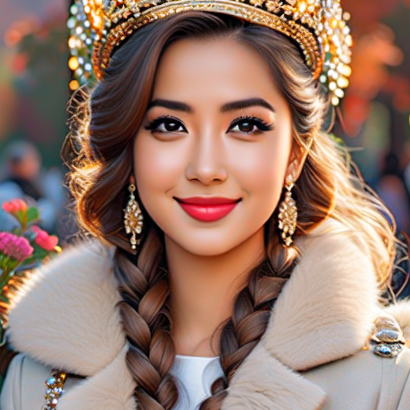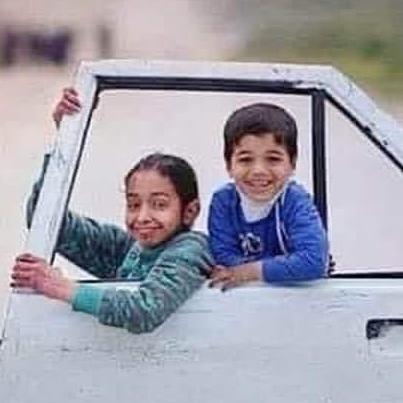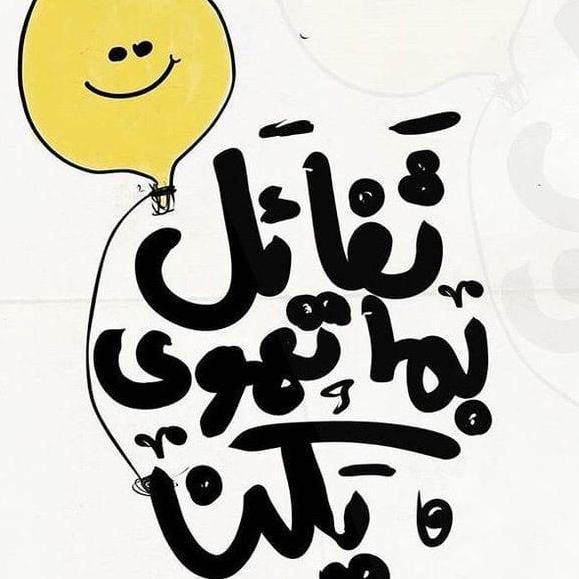Egyptian novelist
“We see illusions with the taste of happiness.”
“We see illusions with the taste of happiness.”
- 15 المنشورات
- 5 الصور
- 1 الفيديوهات
- Novelist لدى Novelist
- يعيش في Gaza&Palestine
- من Egypt
- درس Public law لدى Al Azhar universityفئة من Second grade - Sharia and law
- Male
- أعزب
- 02/07/2003
- متابَع بواسطة 5 أشخاص
التحديثات الأخيرة
- Teaser For "The Coming Ones" Coming Soon.Teaser For "The Coming Ones" Coming Soon.0 التعليقات 0 المشاركات 81 مشاهدة 1الرجاء تسجيل الدخول , للأعجاب والمشاركة والتعليق على هذا!
- ## The Perennial Shadow of Terrorism: Understanding Its Dangers and Global ImpactIntroduction Terrorism, a term that sends shivers down the spine of the global community, has been a persistent threat to international peace and security. The phenomenon, characterized by the unlawful use of violence and intimidation, especially against civilians, in pursuit of political aims, has evolved over the decades. It transcends borders, ideologies, and tactics, making it a complex...0 التعليقات 0 المشاركات 445 مشاهدة
- Title: Unveiling the Bias: Addressing Gender Inequality in Arab Nations
Introduction:
In the intricate tapestry of Middle Eastern societies, gender bias against women is a deeply rooted issue, woven into the fabric of daily life through traditional norms, cultural practices, and even legislative frameworks. Arab countries, with their rich history and cultural diversity, are no exception to this global challenge. The beginning of the 21st century has witnessed a growing awareness and dialogue surrounding gender equality, yet the remnants of bias persist, influencing the lives of women and the development of nations. This essay aims to dissect the layers of male bias against women in Arab countries, exploring its manifestations, underlying causes, and the ongoing struggle for equality.
The Presence of Bias:
In many Arab nations, the bias against women manifests in various domains, ranging from educational opportunities to economic participation, political representation, and personal freedoms. Despite significant strides in female education enrollment rates, the transition from education to employment remains a hurdle due to societal expectations and restrictive labor laws. Women often face a 'glass ceiling' that hinders their advancement into leadership roles within their professions.
Moreover, personal status laws in several Arab countries continue to favor men in matters of marriage, divorce, inheritance, and child custody. Women's mobility and autonomy are further constrained by guardianship systems and societal norms that limit their public engagement and enforce a strict code of conduct that prioritizes family honor over individual rights.
The Roots of Bias:
The origins of male bias against women in Arab societies are multifaceted. At the heart lies a patriarchal system that historically viewed men as providers and women as caregivers, roles that have been enshrined in social, religious, and legal constructs. Educational curricula and media representations often perpetuate stereotypical images of gender roles, reinforcing the status quo.
Religious interpretations have also played a significant role in shaping attitudes towards gender roles. While many scholars argue that the essence of Islam advocates for the dignity and equality of all individuals, including women, certain interpretations of religious texts have been used to justify gender discrimination.
The Path Forward:
The journey towards gender equality in Arab countries is complex but not insurmountable. Governments have begun to implement reforms aimed at improving women's rights, such as outlawing harmful practices like female genital mutilation (FGM) and allowing women to apply for passports without male permission. Grassroots movements and non-governmental organizations are increasingly vocal, advocating for women's rights and societal change.
Education is pivotal in dismantling biases. Curricula that promote gender equality and critical thinking can reshape perceptions from a young age. Moreover, empowering women economically through equal employment opportunities and supporting female entrepreneurship can break the cycle of dependency and challenge traditional power dynamics.
The role of men in this transformation is crucial. Men must become allies in the fight for gender equality, recognizing that societies thrive when all members are allowed to reach their full potential. Initiatives that engage men and boys in dialogue and education about gender equality can foster a new generation that values diversity and equity.
Conclusion:
The bias against women in Arab countries is an issue with deep historical roots and complex cultural dimensions. While progress has been made, there is still a long road ahead to achieve true gender equality. It requires a concerted effort from all segments of society—governments, communities, families, and individuals—to challenge and change the entrenched norms that perpetuate discrimination.
As we continue to witness a global movement towards inclusivity and equality, Arab nations stand at a crossroads. By embracing reform and promoting gender parity, they can harness the full potential of their populations and pave the way for more prosperous, equitable societies. The end of gender bias is not just a moral imperative but a practical one; it is essential for the sustainable development and harmony of nations in an increasingly interconnected world.
#no_hastags
#recordsTitle: Unveiling the Bias: Addressing Gender Inequality in Arab Nations Introduction: In the intricate tapestry of Middle Eastern societies, gender bias against women is a deeply rooted issue, woven into the fabric of daily life through traditional norms, cultural practices, and even legislative frameworks. Arab countries, with their rich history and cultural diversity, are no exception to this global challenge. The beginning of the 21st century has witnessed a growing awareness and dialogue surrounding gender equality, yet the remnants of bias persist, influencing the lives of women and the development of nations. This essay aims to dissect the layers of male bias against women in Arab countries, exploring its manifestations, underlying causes, and the ongoing struggle for equality. The Presence of Bias: In many Arab nations, the bias against women manifests in various domains, ranging from educational opportunities to economic participation, political representation, and personal freedoms. Despite significant strides in female education enrollment rates, the transition from education to employment remains a hurdle due to societal expectations and restrictive labor laws. Women often face a 'glass ceiling' that hinders their advancement into leadership roles within their professions. Moreover, personal status laws in several Arab countries continue to favor men in matters of marriage, divorce, inheritance, and child custody. Women's mobility and autonomy are further constrained by guardianship systems and societal norms that limit their public engagement and enforce a strict code of conduct that prioritizes family honor over individual rights. The Roots of Bias: The origins of male bias against women in Arab societies are multifaceted. At the heart lies a patriarchal system that historically viewed men as providers and women as caregivers, roles that have been enshrined in social, religious, and legal constructs. Educational curricula and media representations often perpetuate stereotypical images of gender roles, reinforcing the status quo. Religious interpretations have also played a significant role in shaping attitudes towards gender roles. While many scholars argue that the essence of Islam advocates for the dignity and equality of all individuals, including women, certain interpretations of religious texts have been used to justify gender discrimination. The Path Forward: The journey towards gender equality in Arab countries is complex but not insurmountable. Governments have begun to implement reforms aimed at improving women's rights, such as outlawing harmful practices like female genital mutilation (FGM) and allowing women to apply for passports without male permission. Grassroots movements and non-governmental organizations are increasingly vocal, advocating for women's rights and societal change. Education is pivotal in dismantling biases. Curricula that promote gender equality and critical thinking can reshape perceptions from a young age. Moreover, empowering women economically through equal employment opportunities and supporting female entrepreneurship can break the cycle of dependency and challenge traditional power dynamics. The role of men in this transformation is crucial. Men must become allies in the fight for gender equality, recognizing that societies thrive when all members are allowed to reach their full potential. Initiatives that engage men and boys in dialogue and education about gender equality can foster a new generation that values diversity and equity. Conclusion: The bias against women in Arab countries is an issue with deep historical roots and complex cultural dimensions. While progress has been made, there is still a long road ahead to achieve true gender equality. It requires a concerted effort from all segments of society—governments, communities, families, and individuals—to challenge and change the entrenched norms that perpetuate discrimination. As we continue to witness a global movement towards inclusivity and equality, Arab nations stand at a crossroads. By embracing reform and promoting gender parity, they can harness the full potential of their populations and pave the way for more prosperous, equitable societies. The end of gender bias is not just a moral imperative but a practical one; it is essential for the sustainable development and harmony of nations in an increasingly interconnected world. #no_hastags #records0 التعليقات 0 المشاركات 62 مشاهدة - Chapter 1: A Fractured Dawn
Elias had never been a morning person, but today the sun's first rays felt like a spotlight, singling him out in a cosmic play he hadn't auditioned for. He woke to the chirping of sparrows, a sound that used to be like a gentle hand nudging him towards consciousness. Today, it was a cacophony that seemed to mock his confusion.
He lay there for a moment, eyes closed, willing the world to right itself. But with a deep breath, he opened his eyes, and the room greeted him with an unfamiliar softness. The walls were draped in pastel hues, the morning light filtering through curtains that danced with silhouettes of flowers and vines. Elias blinked. His room had never been adorned with such... delicacy.
The realization hit him in waves; the first was disbelief, the second was fear, and the third was an overwhelming sense of curiosity. He sat up, and with that simple motion, he felt it. His body was not his own—or rather, it was not the one he remembered falling asleep with.
His gaze fell upon his hands, slender and smooth, lacking the familiar calluses that adorned his fingertips from years of strumming guitar strings. They moved with an elegance that was foreign to him, fluttering through the air like leaves caught in a gentle stream. Elias swallowed hard, a lump forming in his throat as he turned them over, inspecting this new flesh that obeyed him.
With tentative steps, he approached the mirror that hung on the back of his door—a mirror that had borne witness to his transformation from boy to man. Now it held the image of a girl who seemed to be around his age, with eyes wide in wonder and fear. Her hair fell in soft waves around her shoulders, framing a face that held the echoes of his own but softened, as if someone had taken an eraser to the lines of his jaw and the stubble that used to claim his chin each morning.
The world outside beckoned, but Elias—or was it Elia now?—felt a pull towards the guitar that rested in the corner of the room. It stood there, as it always had, a steadfast companion through every twist in his life. Yet now it seemed like an artifact from another lifetime.
Compelled by a force he couldn't understand, Elia reached for the instrument. It felt alien under her fingertips, its curves too large for her smaller hands. She strummed a chord, and a melody spilled forth—a tune that weaved through the air like threads of silk. It was haunting and beautiful, filled with longing and a touch of something else... magic.
The music wrapped around her, and she closed her eyes, letting it transport her away from this room that was both known and strange. As the last note faded into a poignant silence, Elia made a choice. She would walk out of this room. She would walk these familiar streets now cast in an unfamiliar light.
She dressed with care, choosing clothes that felt right for this new form—a simple dress that fluttered around her knees and a cardigan that offered comfort. The fabric whispered against her skin like secrets shared between old friends.
As she stepped outside, the city greeted her not with the roar of traffic and the smell of paint but with the hushed rustle of leaves and the sweet scent of lilies carried on the wind. The concrete beneath her feet felt softer somehow, as if it had been padded with moss.
She walked aimlessly at first, her heart guiding her down streets she thought she knew. But today they were different. Murals she had painted seemed to pulse with life, their colors more vibrant as if they had been infused with her current state of wonder.
People passed by her, some in a hurry to get to wherever life was taking them, others leisurely strolling and lost in thought. They saw her but didn't really see her—not the Elia who had woken up this morning in a body that felt like a new continent to be explored.
As she wandered, she found herself in one of the city's hidden gardens—a place she had often sketched but never felt part of. Now she sat on a bench, her presence as natural as the roses that bloomed around her. She watched as bees danced from flower to flower, their tiny wings glistening in the sunlight.
It was here that she met Anaïs, an old woman with eyes like polished agate and a smile that seemed to know secrets about the world that Elia could only guess at. Anaïs spoke softly, her words laced with an accent that spoke of far-off places.
"You are new to this dance," Anaïs said, her gaze piercing. "But you are not afraid."
Elia shook her head. "I'm terrified," she admitted.
"But you are here," Anaïs countered. "And you are moving to its rhythm already."
They spoke of many things—of change and of life's unpredictable nature. And as the sun began to dip below the skyline, painting the city in shades of gold and amber, Elia realized that this was just the first chapter of her new story.
As she bid farewell to Anaïs and made her way back home, Elia felt the ground beneath her feet solidify. The fracture in her reality was still there, a jagged line that would always mark the before and after. But it no longer felt like a chasm. Instead, it was a bridge leading her to a world woven with moonbeams and whispers—a world where she could paint a new masterpiece on the canvas of her shattered life.Chapter 1: A Fractured Dawn Elias had never been a morning person, but today the sun's first rays felt like a spotlight, singling him out in a cosmic play he hadn't auditioned for. He woke to the chirping of sparrows, a sound that used to be like a gentle hand nudging him towards consciousness. Today, it was a cacophony that seemed to mock his confusion. He lay there for a moment, eyes closed, willing the world to right itself. But with a deep breath, he opened his eyes, and the room greeted him with an unfamiliar softness. The walls were draped in pastel hues, the morning light filtering through curtains that danced with silhouettes of flowers and vines. Elias blinked. His room had never been adorned with such... delicacy. The realization hit him in waves; the first was disbelief, the second was fear, and the third was an overwhelming sense of curiosity. He sat up, and with that simple motion, he felt it. His body was not his own—or rather, it was not the one he remembered falling asleep with. His gaze fell upon his hands, slender and smooth, lacking the familiar calluses that adorned his fingertips from years of strumming guitar strings. They moved with an elegance that was foreign to him, fluttering through the air like leaves caught in a gentle stream. Elias swallowed hard, a lump forming in his throat as he turned them over, inspecting this new flesh that obeyed him. With tentative steps, he approached the mirror that hung on the back of his door—a mirror that had borne witness to his transformation from boy to man. Now it held the image of a girl who seemed to be around his age, with eyes wide in wonder and fear. Her hair fell in soft waves around her shoulders, framing a face that held the echoes of his own but softened, as if someone had taken an eraser to the lines of his jaw and the stubble that used to claim his chin each morning. The world outside beckoned, but Elias—or was it Elia now?—felt a pull towards the guitar that rested in the corner of the room. It stood there, as it always had, a steadfast companion through every twist in his life. Yet now it seemed like an artifact from another lifetime. Compelled by a force he couldn't understand, Elia reached for the instrument. It felt alien under her fingertips, its curves too large for her smaller hands. She strummed a chord, and a melody spilled forth—a tune that weaved through the air like threads of silk. It was haunting and beautiful, filled with longing and a touch of something else... magic. The music wrapped around her, and she closed her eyes, letting it transport her away from this room that was both known and strange. As the last note faded into a poignant silence, Elia made a choice. She would walk out of this room. She would walk these familiar streets now cast in an unfamiliar light. She dressed with care, choosing clothes that felt right for this new form—a simple dress that fluttered around her knees and a cardigan that offered comfort. The fabric whispered against her skin like secrets shared between old friends. As she stepped outside, the city greeted her not with the roar of traffic and the smell of paint but with the hushed rustle of leaves and the sweet scent of lilies carried on the wind. The concrete beneath her feet felt softer somehow, as if it had been padded with moss. She walked aimlessly at first, her heart guiding her down streets she thought she knew. But today they were different. Murals she had painted seemed to pulse with life, their colors more vibrant as if they had been infused with her current state of wonder. People passed by her, some in a hurry to get to wherever life was taking them, others leisurely strolling and lost in thought. They saw her but didn't really see her—not the Elia who had woken up this morning in a body that felt like a new continent to be explored. As she wandered, she found herself in one of the city's hidden gardens—a place she had often sketched but never felt part of. Now she sat on a bench, her presence as natural as the roses that bloomed around her. She watched as bees danced from flower to flower, their tiny wings glistening in the sunlight. It was here that she met Anaïs, an old woman with eyes like polished agate and a smile that seemed to know secrets about the world that Elia could only guess at. Anaïs spoke softly, her words laced with an accent that spoke of far-off places. "You are new to this dance," Anaïs said, her gaze piercing. "But you are not afraid." Elia shook her head. "I'm terrified," she admitted. "But you are here," Anaïs countered. "And you are moving to its rhythm already." They spoke of many things—of change and of life's unpredictable nature. And as the sun began to dip below the skyline, painting the city in shades of gold and amber, Elia realized that this was just the first chapter of her new story. As she bid farewell to Anaïs and made her way back home, Elia felt the ground beneath her feet solidify. The fracture in her reality was still there, a jagged line that would always mark the before and after. But it no longer felt like a chasm. Instead, it was a bridge leading her to a world woven with moonbeams and whispers—a world where she could paint a new masterpiece on the canvas of her shattered life.0 التعليقات 0 المشاركات 70 مشاهدة - ## The Invisible Chains: Exposing the Grime of Human Trafficking
Across the globe, in the shadows of glitzy skylines and idyllic countryside, lurks a sinister truth: the pervasive horror of human trafficking. Millions of individuals, from children barely out of infancy to weary adults, are trapped in a web of coercion, exploitation, and abuse, stripped of their freedom and dignity. Their stories, whispered in tears and etched in scars, paint a harrowing picture of a modern-day slave trade, thriving on vulnerability and fueled by greed.
Human trafficking encompasses a range of heinous acts, encompassing forced labor, sexual exploitation, and even organ harvesting. Traffickers employ an arsenal of tactics – from false promises of lucrative jobs to outright abduction – to ensnare their victims. Poverty, displacement, and social exclusion make some particularly susceptible, offering predators fertile ground for exploitation. Once trapped, victims endure physical and psychological torture, robbed of their identity and subjected to inhumane conditions.
The scope of this epidemic is staggering. According to the International Labour Organization, an estimated 40.3 million people are caught in various forms of modern slavery. This invisible army fuels industries from agriculture and garment manufacturing to construction and domestic work, generating illegal profits of billions of dollars annually. While statistics paint a grim picture, they only represent the tip of the iceberg. Countless victims remain hidden, their voices silenced by fear and isolation.
Combating this scourge requires a multifaceted approach. Law enforcement agencies must prioritize investigations and dismantle trafficking networks. Governments need to strengthen legislation and implement comprehensive support systems for survivors. Communities must be empowered to recognize and report suspicious activity, while educational efforts can raise awareness and prevent vulnerabilities.
But dismantling this intricate web also necessitates a shift in perspective. Human trafficking isn't a distant reality confined to war-torn regions or impoverished corners of the world. It lurks in plain sight, often masked by seemingly ordinary facades. The garment we wear, the fruit we enjoy, the construction project we admire – any of these could be tainted by the invisible chains of human exploitation.
We must shed our complacency and acknowledge our collective responsibility. By demanding transparency in supply chains, supporting ethical businesses, and advocating for legislative action, we can become agents of change. Recognizing the warning signs, reporting suspicious activity, and offering support to vulnerable individuals are crucial steps in chipping away at this global injustice.
In the fight against human trafficking, knowledge is power. Breaking the silence, confronting uncomfortable truths, and amplifying the voices of survivors are vital weapons in our arsenal. Only through sustained vigilance, unwavering commitment, and a collective will to act can we hope to dismantle the invisible chains and liberate the millions trapped in the grimy grasp of this heinous crime.
Let us not turn a blind eye to the suffering unfolding in our midst. Let us act, with informed empathy and unwavering resolve, to ensure that every human being is free to live with dignity and self-determination.
#No_Hastags
#records## The Invisible Chains: Exposing the Grime of Human Trafficking Across the globe, in the shadows of glitzy skylines and idyllic countryside, lurks a sinister truth: the pervasive horror of human trafficking. Millions of individuals, from children barely out of infancy to weary adults, are trapped in a web of coercion, exploitation, and abuse, stripped of their freedom and dignity. Their stories, whispered in tears and etched in scars, paint a harrowing picture of a modern-day slave trade, thriving on vulnerability and fueled by greed. Human trafficking encompasses a range of heinous acts, encompassing forced labor, sexual exploitation, and even organ harvesting. Traffickers employ an arsenal of tactics – from false promises of lucrative jobs to outright abduction – to ensnare their victims. Poverty, displacement, and social exclusion make some particularly susceptible, offering predators fertile ground for exploitation. Once trapped, victims endure physical and psychological torture, robbed of their identity and subjected to inhumane conditions. The scope of this epidemic is staggering. According to the International Labour Organization, an estimated 40.3 million people are caught in various forms of modern slavery. This invisible army fuels industries from agriculture and garment manufacturing to construction and domestic work, generating illegal profits of billions of dollars annually. While statistics paint a grim picture, they only represent the tip of the iceberg. Countless victims remain hidden, their voices silenced by fear and isolation. Combating this scourge requires a multifaceted approach. Law enforcement agencies must prioritize investigations and dismantle trafficking networks. Governments need to strengthen legislation and implement comprehensive support systems for survivors. Communities must be empowered to recognize and report suspicious activity, while educational efforts can raise awareness and prevent vulnerabilities. But dismantling this intricate web also necessitates a shift in perspective. Human trafficking isn't a distant reality confined to war-torn regions or impoverished corners of the world. It lurks in plain sight, often masked by seemingly ordinary facades. The garment we wear, the fruit we enjoy, the construction project we admire – any of these could be tainted by the invisible chains of human exploitation. We must shed our complacency and acknowledge our collective responsibility. By demanding transparency in supply chains, supporting ethical businesses, and advocating for legislative action, we can become agents of change. Recognizing the warning signs, reporting suspicious activity, and offering support to vulnerable individuals are crucial steps in chipping away at this global injustice. In the fight against human trafficking, knowledge is power. Breaking the silence, confronting uncomfortable truths, and amplifying the voices of survivors are vital weapons in our arsenal. Only through sustained vigilance, unwavering commitment, and a collective will to act can we hope to dismantle the invisible chains and liberate the millions trapped in the grimy grasp of this heinous crime. Let us not turn a blind eye to the suffering unfolding in our midst. Let us act, with informed empathy and unwavering resolve, to ensure that every human being is free to live with dignity and self-determination. #No_Hastags #records1 التعليقات 0 المشاركات 97 مشاهدة - "My New Year's resolution? To finally achieve emotional stability... or at least find a good fake smile."
#No_Hastags"My New Year's resolution? To finally achieve emotional stability... or at least find a good fake smile." #No_Hastags0 التعليقات 0 المشاركات 95 مشاهدة - "تحولوا إلى آلات بشرية، يأكلون ما يُطعمون ويرددون ما يُلقنون بلا تمحيص" #records0 التعليقات 0 المشاركات 227 مشاهدة1

- "لم يعد هناك حوار بنّاء، بل صراخ جماعي مُطاطئ لكل رأيٍ مُخالف" #records1 التعليقات 0 المشاركات 240 مشاهدة1

- عندما يسقط الظل انظر إلى حيث تلتقي النجوم. #records0 التعليقات 1 المشاركات 263 مشاهدة
- "Life is a cruel joke, and I'm the punchline." #Records0 التعليقات 0 المشاركات 356 مشاهدة2

المزيد من المنشورات











